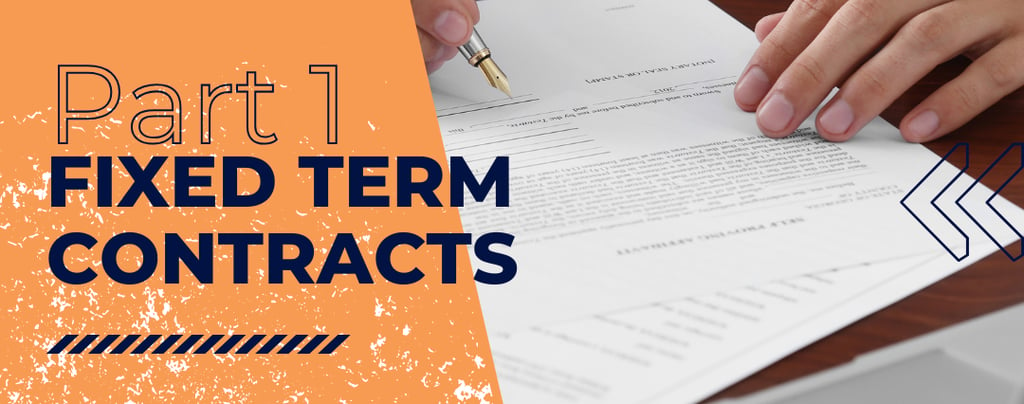Fixed Term Contracting in Sports (Pt 1)
Late last year, new legislation came into effect that will change the face of sports in Australia. In Part 1, I explore the immediate changes and challenges coming for the sporting landscape of Australia as it works to respond to the urgent changes.
1/16/20253 min read


I preface this by saying that while I am qualified and practicing as a lawyer, I don't work in sports law. I do work in employment law, and the following post is a reflection of my insights from that knowledge. It is not legal advice, and is general commentary. Anyone concerned about the potential personal legal or professional implications should seek specific, personal legal advice from a legal advisor.
In 2023, the Australian Government passed the Closing Loopholes Act 2023. In 2024, it followed up with the Closing Loopholes Act (No 2) 2024. Those two pieces of legislation have the potential to shift the way that Australian sport works forever, and could impact the future of high performance and professional sport in this country on a seismic level.
To start with the context, in professional leagues across Australia (and the world), athletes are employed by clubs or leagues to play professional sport. In Australia, these athletes are engaged on what we call “Fixed Term Contracts” for either full time or part time employment until a fixed date. As the name suggests, the contracts give athletes (and sometimes coaches and other staff) employment for a fixed period of time - until the specified end date. And these contracts govern almost every professional athlete in Australia.
As of 6 December 2023, across Australia, there are new restrictions around the use of Fixed Term Contracts (FTCs) in Australia. They are, broadly:
FTCs cannot be for a period of longer than 2 years
FTCs cannot be extended more than once; and
FTCs cannot be extended for a period of time that would make them longer than 2 years (e.g. a 1 year contract can’t be extended more than another year).
There were some protections in the legislation specifically for organised and high performance sport (categorised differently by the legislation).
Until 1 November 2025, FTCs in organised sport are not subject to the limitations if (and only if):
the employer is a National Sporting Organisation (or NSO for people with a disability recognised by the Australian Sports Commission); or
the employer is the governing body for organised sport in a state or territory; or
the employer is a body conducting state- or territory-level competition for an organised sport; or
the employer is an organisation that is a member or otherwise affiliated with any of those bodies.
Until 1 November 2025, FTCs in high-performance sport are not subject to the limitations if (and only if):
the employer is a National Sporting Organisation (or NSO for people with a disability recognised by the Australian Sports Commission); or
the employer is an international body or the Australian organising committee for an international event; and
the international event isn’t regularly held in Australia; and
the international body has granted the Australian organising body the right to host the event, or the Australian organising body is seeking to host the event.
So essentially, these restrictions allow that until 1 November of this year, groups like the Rugby World Cups (2027 and 2029), the Netball World Cup (2027) and the Brisbane Olympics (2032) don’t face the new limitations. After that - the same rules (and exceptions) will apply.
There are some exceptions to these requirements. The ones that may apply for sport (because some of the exceptions won’t) are:
Specialised skills; and
High income earners.
The wording around specialised skills is not super clear, but as I will get to in a minute, I am not sure that professional sport is going to fall into this exception. It might, but it may also take a court proceeding to find out - and I don’t expect there to be a huge appetite for that.
The high income earner threshold allows that employees who earn above the threshold are exempt from the limitations around FTCs. My (sort-of-but-not-technically) professional opinion is that this is likely to be the most relevant exception for sports in Australia. And so, I think that the sporting clubs and leagues that can afford to push all players above the high income threshold will.|
That may require some amendments to Collective Bargaining Agreements and other enterprise agreements, to raise salary caps and other restrictions. But I think clubs and leagues may look at that as a better/easier option than any other path, if they can afford it. But the big challenge will be for the leagues and clubs that can’t. For those sports that can’t afford it.
So what are we looking at? Significant changes to the sporting landscape for Australia for athletes and events. What my best guess for that future looks like? Stay tuned for Part 2, coming soon!


SUBSCRIBE
Get these insights in your inbox, straight to your inbox
About - Coppel Sports
ABN 89 351 198 453
Bondi NSW
Contact
dan@coppelsports.com.au
+61 439 263 221
Policies


